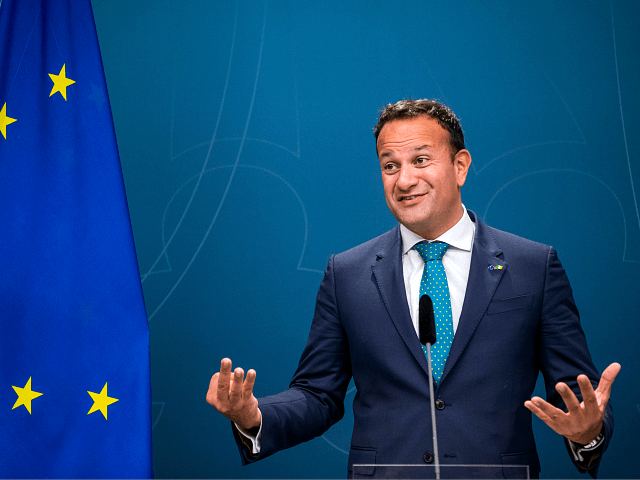The Irish government has said it “cannot possibly” accept Boris Johnson’s proposed Brexit compromise, with the Irish prime minister claiming the British want another referendum.
Prime Minister Boris Johnson had put forward a repackaged version of Theresa May’s withdrawal treaty with the European Union, which would have seen the British hand over an estimated £39 billion in exit fees, enter a years-long, extendable “transition” period in which Britain would remain an EU member-state in all but name — minus its representation in EU institutions — and agree to fall into a so-called “backstop” trading relationship if a free trade agreement was not agreed by the end of that period.
The backstop, supposedly vital to maintaining an open border between EU member-state the Republic of Ireland and the British province of Northern Ireland, would have seen the latter effectively annexed to the EU Customs Union and Single Market, and mainland Great Britain obliged to enter a parallel “single customs territory” under EU control.
This was unacceptable to Northern Ireland’s Brexit-supporting Democratic Unionist Party (DUP), which supports maintaining Northern Ireland’s place in the British Union, as it involved their province being treated as a third country by the rest of the United Kingdom, and was envisioned as being indefinite in duration and unable to terminate without the EU’s permission.
Prime Minister Johnson was willing to accept most of the withdrawal treaty’s provisions, but drew the line at the backstop, proposing instead a kind of virtual border in which traders would fulfill their customs obligations at locations which are not “at or near” the British-Irish land border, some regulatory alignment between Northern Irlenad and the EU, and the Northern Ireland Assembly allowed to review whether or not to maintain the arrangements every four years.
Simon Coveny, the Irish republic’s deputy prime minister — or tánaiste — said his government “cannot possibly” accept the plan, however, and that if it was a final offer rather a “stepping stone” there would be a no-deal Brexit.
Even more remarkably, Irish prime minister — or taoiseach — Leo Varadkar appeared to respond to the proposed compromise deal by making a direct intervention in Britain’s domestic politics, claiming without evidence that “All the polls since Prime Minister Johnson became prime minister suggest [a second referendum is] what the British people actually want, but their political system isn’t able to give them that choice.”
Irish politicians have forced their own voters to try again in two previous European Union referendums, on the Treaty of Nice and the Treaty of Maastricht, which significantly extended the bloc’s powers over its member-states.
The Irish rejected both treaties when they were first presented to them, but got the “right” answer second time around under heavy pressure.
Follow Jack Montgomery on Twitter: @JackBMontgomery
Follow Breitbart London on Facebook: Breitbart London

COMMENTS
Please let us know if you're having issues with commenting.